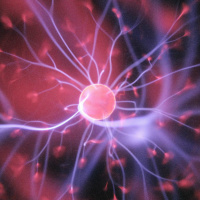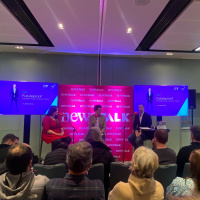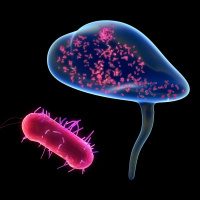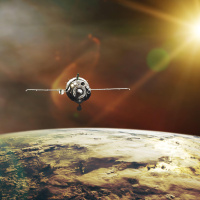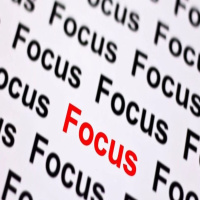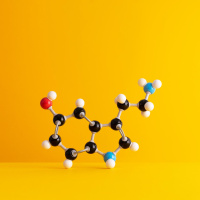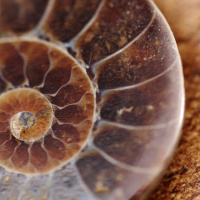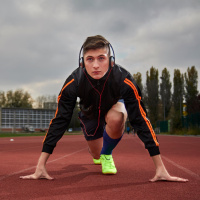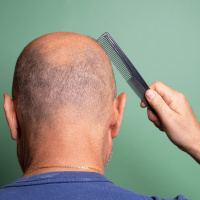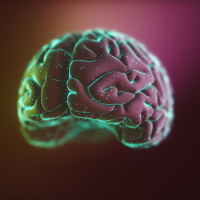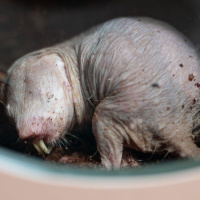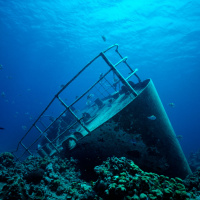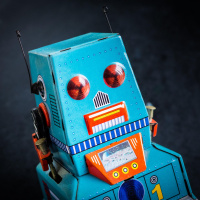Futureproof With Jonathan Mccrea
- Autor: Vários
- Narrador: Vários
- Editora: Podcast
- Duração: 142:43:56
- Mais informações
Informações:
Sinopse
Jonathan McCrea brings you the latest developments from the world of Science and Technology from robotics in warfare to artificial lifeforms and beyond
Episódios
-
Futureproof Extra: Where do we save our memories?
28/11/2023 Duração: 16minOur brain has about 86 billion neurons making it a pretty busy place but how much of that space is dedicated to storing our memories and where exactly does that happen? Joining Jonathan to get a better understanding of how we store memories is Tomás Ryan, Associate Professor in Trinity’s School of Biochemistry and Immunology, Trinity Biomedical Sciences Institute, and the Trinity College Institute of Neuroscience.
-
Should we delay clamping the umbilical cord?
26/11/2023 Duração: 39minJoining Jonathan to discuss new research that indicates that a delay in clamping the umbilical cord of premature babies could decrease the risk of death by as much as two-thirds is Professor Eugene Dempsey, Horgan Chair in Neonatology at the INFANT Centre at UCC.Also joining Jonathan for Newsround is physicist, Philip Smyth, and sustainable food production scientist, Laura Healy.
-
Science Week Special: What are the biggest threats to humanity?
19/11/2023 Duração: 57minWhen it comes to the end of humanity, there are numerous ways it might come to pass - be it a wayward asteroid, the eruption of a super volcano, the ever-growing presence of Artificial Intelligence in our lives, or the unseen spores of a killer fungus. But which one of these poses the greatest risk? This is the question posed by Jonathan in this very special episode of Futureproof which was recorded in front of a live audience at the Dublin Royal Convention Centre.Joining us to discuss is:Dr. Robert Ross, Senior Lecturer in the School of Computer Science at TU DublinProfessor Chris Bean, Senior Professor and Head of Geophysics at the Dublin Institute for Advanced StudiesProfessor Caitriona Jackman, Senior Professor of Space Physics at Dunsink ObservatoryJerry Clancy, PhD student at the School of Chemical Sciences in DCUDr. Shane Bergin, physicist and an assistant professor in science education at UCD's School of Education & Immunologist, Dr. Lara Dungan, also join Jonathan for this week's Newsround.With
-
Futureproof Extra: Exploring why UTIs persist with artificial bladders
14/11/2023 Duração: 14minThere are around 400 million global cases of UTIs or urinary tract infections per year, and they can often persist, but why? Researchers in the UK have been using artificial bladders to find out what makes them stick around. Joining Jonathan to discuss is Prof Jennifer Rohn, Professorial Research Fellow in Renal Medicine at University College London and Head of the Centre for Urological Biology.
-
EIRSAT-1: Ireland’s first satellite set for launch
12/11/2023 Duração: 32minThe Educational Irish Research Satellite 1 (EIRSAT-1) is set for launch in November, which will make it Ireland’s first venture into space. To discuss, Jonathan is joined by Dr. David McKeown, Assistant Professor/Lecturer in the School of Mechanical and Materials Engineering at UCD, and the Engineering Manager for the EIRSAT-1 project.For this week's episode of Newsround, Jonathan is joined by Dr Oran Kennedy, Associate Professor of Anatomy and Regenerative Medicine, RCSI & Dr. Fergus McAuliffe, Communications and Public Engagement Manager at iCRAG, the Science Foundation Ireland Research Centre for Applied Geosciences.
-
Best of Futureproof: Why You Can't Focus
05/11/2023 Duração: 19minOn this episode of Futureproof, Jonathan McCrea interviews Johann Hari, author of ‘Stolen Focus: Why You Can't Pay Attention'.
-
Futureproof Extra: The problem with 'Forever Chemicals'
31/10/2023 Duração: 14minSynthetic compounds are found in a multitude of items that we manufacture. They can help us create newfound or superior chemical composites that go into the everyday items we take for granted like non-stick and water-resistant materials. But these synthetic compounds are now being detected in drinking water sources worldwide, being dubbed ‘Forever Chemicals’.So, what can be done about it?Dr. Ruairí Brannigan, Assistant Professor in the School of Chemical Sciences at DCU joins Jonathan to discuss.
-
Nature’s most effective and delicious toxins
29/10/2023 Duração: 42minProf. Noah Whiteman has been exploring the secrets of nature’s toxins, how they evolved, and how we use them. Noah is Professor of Genetics, Genomics, Evolution, and Development and Director of the Essig Museum of Entomology at UC-Berkeley and author of ‘Most Delicious Poison: The Story of Nature's Toxins - From Spices to Vices’ - he joins Jonathan to discuss.Also joining Jonathan for Newsround is Dr. Lara Dungan and Dr. Oran Kennedy from RCSI.
-
Futureproof Extra: Pigments in the fossil record & the medical applications of Biophotonics
24/10/2023 Duração: 27minWhy is your cat ginger or black? Often it comes down to a very small type of pigment that scientists in Cork have been examining to learn more about the colourisation of ancient animals. Joining Jonathan to discuss is Dr Tiffany Slater, Palaeobiologist at UCC who is interested in the preservation of ancient biomolecules.Also on the programme, did you know you can use light to detect specific cells in the body? Professor Stefan Andersson-Engles is the Head of Biophotonics and Deputy Director of IPIC based at the Tyndall National Institute and is also a Professor of Physics at University College Cork who has just been awarded a €5.3 million grant by Science Foundation Ireland to further investigate the application of light-based technologies. He joins Jonathan to discuss.
-
Does free will exist?
22/10/2023 Duração: 18minWhen it comes to free will, we think of our ability to independently make decisions based on our own desires or interests. That being said, there are those who say that we are the mere conscious witnesses of decisions that, deep in our brains, have already been made. Our guest argues that we are not mere vessels responding to physical forces, but agents acting with purpose. Kevin J. Mitchell is Associate Professor of Genetics and Neuroscience at Trinity College Dublin and author of ‘Free Agents – How Evolution Gave Us Free Will’.
-
Do athletes perceive the world differently?
15/10/2023 Duração: 33minNow when it comes to elite sports, there are many attributes that set the best apart from the rest. Not only do you probably have to have won the genetic lottery in the physical stakes, but also the mentality to persevere and work tirelessly to get to the top of the pile.So, with all that setting them apart from those of us sitting on the couch, do some athletes perceive the world differently as well? David McGovern, Assistant Professor in the School of Psychology at Dublin City University has been conducting research looking to answer that very question, and joins Jonathan on this week's episode.Dr Ruth Freeman of Science Foundation Ireland and Phil Smyth, Physicist join Jonathan for the latest science stories in the news this week.
-
Futureproof Extra: What causes male pattern hair loss?
10/10/2023 Duração: 13minMale pattern hair loss is something that over 80% of men will experience in their lifetime. Yet despite it being so widespread, the fundamentals of what actually causes it to occur, in the manner in which it occurs, still elude researchers to this day. According to a new paper, the secret may lie deep in our genetic past, with our embryonic origins. Dr. Claire Higgins, Reader in Tissue Regeneration from the Faculty of Engineering in the Department of Bioengineering of Imperial College London joins Jonathan to discuss.
-
What are the "JuMBO" objects found in the Orion Nebula?
08/10/2023 Duração: 36minScientists at the European Space Agency have used the James Webb Space Telescope to reveal the presence of pairs of planet-like objects in the Orion Nebula that have never been detected before.Referred to as "JuMBOs" - free-floating objects the size of Jupiter - the discovery has the potential to upend our understanding of how stars and planets are formed.Joining Jonathan to discuss this is Mark McCaughrean, ESA Senior Advisor for Science & Exploration.
-
Futureproof Extra: Just how big can our brains get?
03/10/2023 Duração: 13minResearchers at the University of Cambridge have conducted the largest-ever study of the genetics of our brain structure. But how can the shape and size of our brain impact our understanding of neurological and psychiatric conditions? Joining Jonathan to discuss is the co-lead of this study Professor Richard Bethlehem who specialises in brain imaging, genomics, and computational neuroscience.
-
Are we too fixated on optimising our world?
01/10/2023 Duração: 33minWhat are the consequences of living in a world so driven by efficiency, pace, and cost? Applied mathematician Coco Krumme, uses mathematical modelling to get to the bottom of this in her new book 'Optimal Illusions: The False Promise of Optimisation' - she joins Jonathan to discuss.Also joining Jonathan to go through the top news stories from the world of science is Dr. Fergus McAuliffe from iCRAG & Laura Healy, Sustainable Food Production Scientist with Teagasc.
-
Futureproof Extra: Toxoplasma Gondii
26/09/2023 Duração: 16minWhat if we told you that a tiny parasite might be influencing the very core of wolf behaviour, making these fierce predators act in ways contrary to their survival instincts? Enter Toxoplasma Gondii, the unseen puppeteer. Kira Cassidy, a leading research biologist from the Yellowstone Wolf Project - who has delved deep into the mysteries of this parasite and its staggering effects not just on wolves, but possibly on us humans as well - joins Jonathan to discuss.
-
Lessons in longevity from the naked mole-rat
24/09/2023 Duração: 27minListeners to the show might remember that last year we spoke to Dr. Vera Gorbunova from Rochester Aging Research Center at the University of Rochester about her work on SIRT6 - often referred to as the “longevity gene” because of its important role in organising proteins and recruiting enzymes that repair broken DNA. Since then, she and her team have made significant progress in the study of longevity by successfully transferring a different gene from naked mole rats into mice, resulting in improved health and an extension of the mouse’s lifespan. Jonathan is joined by Dr. Vera Gorbunova to discuss.
-
Futureproof Extra: Protecting our underwater cultural heritage
19/09/2023 Duração: 19minWalk into any national museum, in any part of the world, and you will see artifacts of significance – from coins and jewellery, to weapons, utensils, artwork, clothing, and even human remains. They are preserved because these objects tell us something about who we are and where we came from.But what if there is an artifact that is tens, or even hundreds, of meters underwater? How do we protect it from deterioration?Joining Jonathan to discuss this is Dr. David Gregory, Senior Researcher and Honorary Professor from the National Museum of Denmark.
-
Can a robot be a person?
17/09/2023 Duração: 35minWhile the question of 'what is a robot?' might have been easily answered just a few years ago, it is increasingly difficult to define.So, rather than try to fit robots into the existing categories of what is a person and what is a thing, do we need a new framework for the twenty-first century?David J. Gunkel thinks so. He is Professor of Media Studies at Northern Illinois University and author of ‘Person-Thing-Robot: A Moral and Legal Ontology for the 21st Century and Beyond’ - he joins Jonathan to discuss.
-
Futureproof Extra: The World of Dust
12/09/2023 Duração: 16minDust. You might hate it, you might want to get rid of it, you might not know where it comes from, but did you know there are actually two billion tonnes of dust lifted into the Earth’s atmosphere each year? Joining Jonathan to discuss the world of dust is researcher Jay Owens, who has written a new book called ‘Dust – The Modern World in a Trillion Particles’.

